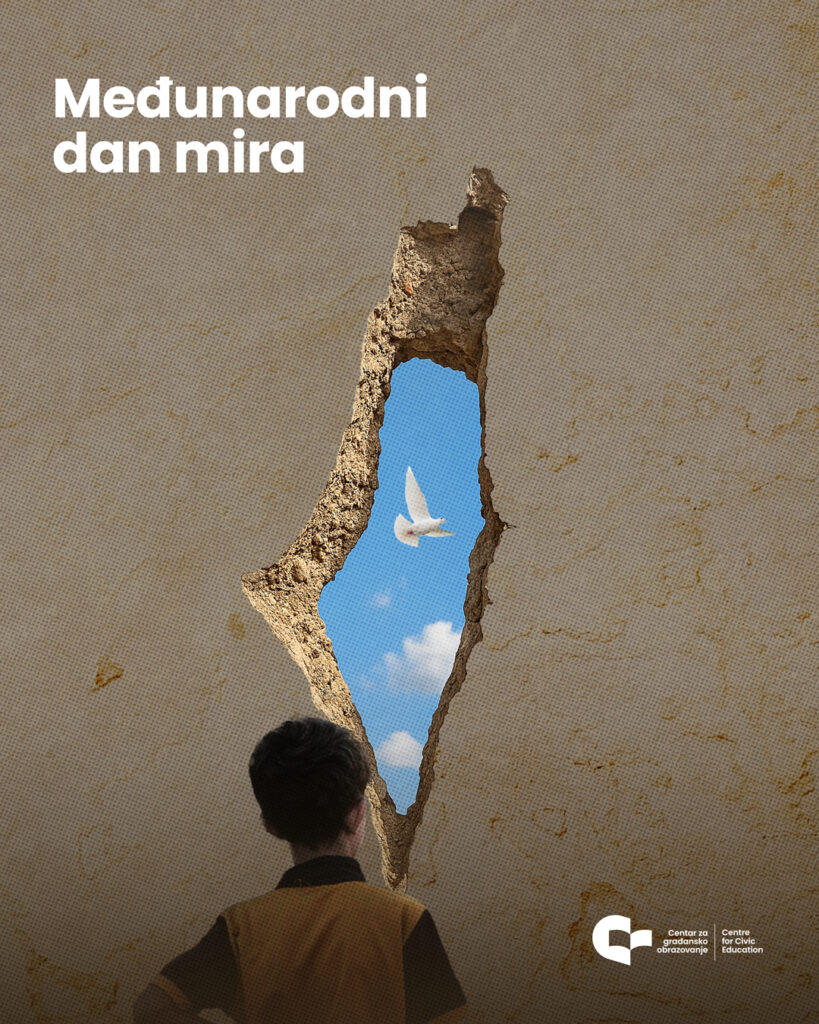On the occasion of the International Day of Peace – 21 September, the Centre for Civic Education (CCE) reminds that peace is not a permanently acquired state, but the result of continuous effort. This year’s United Nations theme, “Act Now for a Peaceful World”, emphasizes the crucial importance of taking concrete steps – from decision-makers and other socio-political actors to every citizen.
Unfortunately, Montenegro is marking this date in an atmosphere of widespread expressions of intolerance and hate speech, which often spill over from the political and public sphere into the daily lives of citizens. One of the recent examples is the violent disruption of the screening of the film Stork at the Džada Film Festival, solely because the film was in the Albanian language. Instead of being a space for dialogue and understanding, art and culture are being subjected to radical outbursts and intimidation, thereby undermining peace, democratic values, and the multiethnic harmony of Montenegro.

This year has also been marked by debate on the amendments to the Law on Public Gatherings and Public Events, with the aim of the authorities to sanction certain gatherings, thereby directly restricting the freedoms of citizens. Such measures are contrary to the Constitution of Montenegro, the state’s international obligations, and European standards, as clearly pointed out by the UN, the Council of Europe, and numerous civil society organizations in Montenegro. Equally concerning is the now evident trend of glorifying war criminals, which has received support from the authorities. Such actions demean the victims, undermine the culture of remembrance, and deepen societal divisions. Attempts to honour individuals associated with war crimes through street names and monuments are not only an insult to the victims, but also a direct attack on public trust in institutions that should promote truth and justice.
All of this points to serious weaknesses within institutions that should serve as guarantors of peace, justice, and democracy. Instead of building trust and unity, they often demonstrate powerlessness and a lack of will to protect fundamental values. It is, however, encouraging that many citizens, organisations, and activists continue to demonstrate their commitment to defending the values of peace and democracy through their actions.
CCE emphasizes that peace is not built by spreading hatred, restricting freedoms, relativizing war crimes, rehabilitating war criminals, or through institutional irresponsibility. Peace is built through openness, unmanipulated confrontation with the past, protection of human rights, and by creating space where citizens can freely express their views and demand accountability from those in power. Therefore, CCE calls on decision-makers to ensure the conditions for genuine democratic dialogue, development, and the rule of law, as this is the only path toward sustainable peace and Montenegro’s European future.
The International Day of Peace was established by the United Nations General Assembly in 1981, and in 2001 it was unanimously declared a day of ceasefire and non-violence.
Jovana Radulović, Project Assistant
